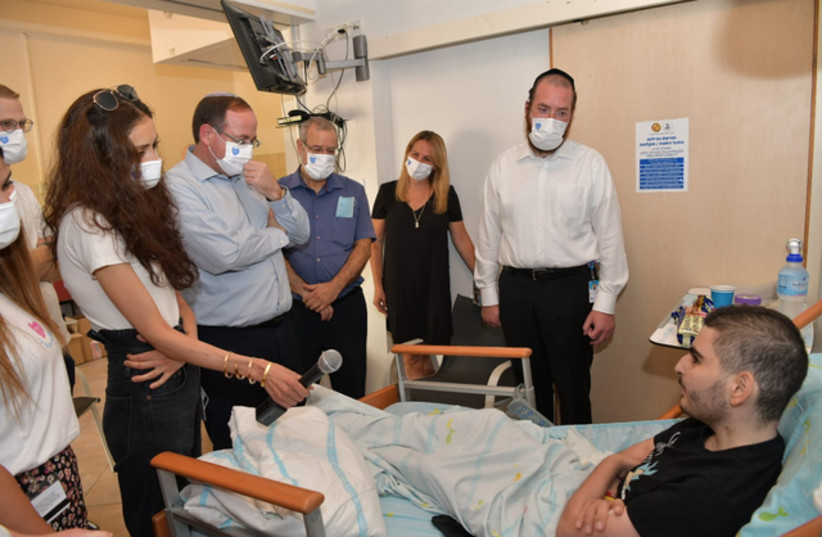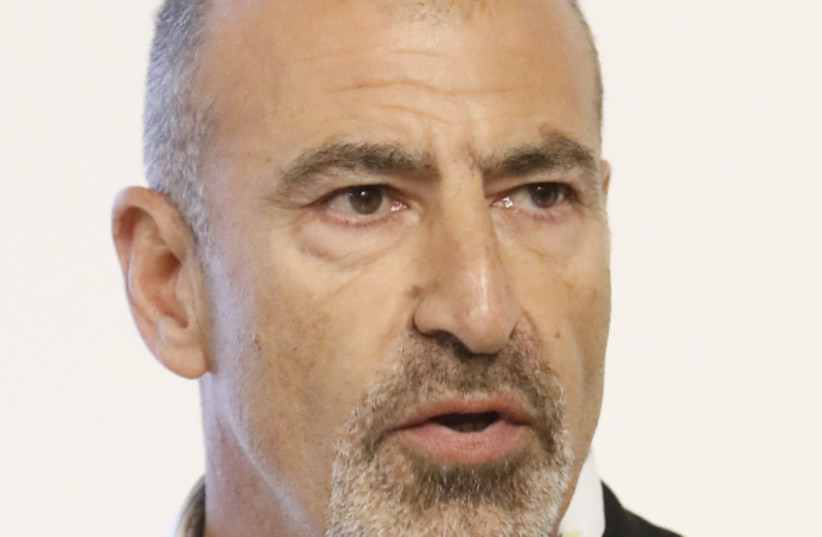Two drugs available in every pharmacy to lower blood pressure and reduce anxiety and one used to prevent pain and inflammation have been found to significantly cut the risk of developing metastases after colon and rectal cancer surgery.
The discovery made at Tel Aviv University (TAU) and tested on patients at Sheba Medical Center at Tel Hashomer also found that the drugs minimized anxiety and stress reaction. The clinical treatment – the first of its kind – starts five days before surgery and lasts for only 20 days, with minimal to no adverse effects.
The study, which included 34 patients treated at Sheba, showed that five years after surgery, only an eighth (12.5%) of the surgical patients who received the drugs developed cancer metastases, compared to half of the control group.
Staggering statistics
The research was led by Prof. Shamgar Ben-Eliyahu of TAU’s Sagol School of Neuroscience and School of Psychological Sciences and Prof. Oded Zamora of TAU’s Sackler Faculty of Medicine. Its results were published in the European Journal of Surgical Oncology under the title “Effect of perioperative COX-2 and beta-adrenergic inhibition on 5-year disease-free-survival in colorectal cancer: A pilot randomized controlled Colorectal Metastasis Prevention Trial (COMPIT).”

“The stress during the waiting period for surgery, the stress and inflammation reactions that the body produces during the surgery itself, the physical recovery period and finally the following anxiety of cancer recurring all have an adverse effect on the body’s ability to fight metastatic processes,” Ben-Eliyahu explained.
These mental and physiological conditions “create stress-inflammatory responses, which cause ample release of hormones from the prostaglandin and catecholamine families. These hormones suppress anti-metastatic immune activity, and thus encourage the development of metastases,” he said.
“In addition, these hormones directly help the cancer cells that remain in the body even after surgery: due to exposure to these hormones, the cancerous tissue becomes more aggressive and metastatic,” the professor said.
“The good news is that we know how to treat both stress and inflammation using off-the-shelf medications.”
Is it too good to be true?
THE TAU researchers gave 34 colon cancer patients two drugs: propranolol (Darlin), which is used to lower blood pressure and reduce anxiety, and etodolac (Etofan), used to prevent pain and inflammation. Sixteen randomly chosen patients took the medication after surgery at Sheba for a very short time.
The other 18 patients in the control group received placebo drugs. Five years later, nine of the 18 patients who received the placebo (50%) developed cancer metastases, compared to two of the 16 patients who took Darlin and Etofen (12.5%).
“Although at five years after the operation, the statistical significance is clear, we need to conduct larger clinical studies,” Ben-Eliyahu said. “Our treatment reduced markers of metastasis in the tumor tissue, and reduced the chances of cancer recurrence. We deliberately sought the safest and cheapest drugs capable of lowering the body's stress-inflammatory response to surgery, in order to save lives.

“It sounds too good to be true, but similar results in breast cancer tissue were obtained in a study we conducted in 2017,” he said. “Due to the small number of subjects in both studies, it is impossible to accurately estimate the magnitude of the beneficial effect, but the effects are statistically significant, meaning that they are not accidental.”
Ben-Eliyahu noted that some physicians distrust the effects of stress-inflammatory reactions, particularly those resulting from psychological factors such as waiting for surgery or fear of the disease spreading. Another problem concerns the financing of clinical studies.
“One should bear in mind that the pharmaceutical companies have no financial incentive to support such studies. Our medicines are not patented; they are safe, cheap, and administered in a short treatment lasting just a few days,” he said. “The drug companies look for patents on expensive drugs and prefer that the patient be dependent on the drug for the rest of their life.
“Unfortunately, the major science foundations in Israel do not fund clinical research on drugs, assuming that the drug companies will fund them. We seek to save lives without financial gain, and we have received financial support from several Israeli and international sources, but these are insufficient for large clinical studies.”
Ben-Eliyahu hopes that funding will be found for a large-scale clinical study upon which his team has embarked, with the intention of recruiting hundreds of colon and rectal cancer patients in Israel – “because without such research, we will not be able to persuade the medical establishment of the treatment’s effectiveness.”
